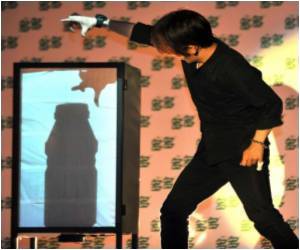Hearing Illusions: Why is it that you hear the word “kick” when “pick” is what is said? This study can help us understand how incorrect perception of speech results from a weak representation of the difference between what we expect to hear and what is actually said.

TOP INSIGHT
New evidence with regard to hearing illusions has been found. The human brain tends to create perceptual illusions when speech is degraded at cocktail parties or in song lyrics.
Using functional magnetic resonance imaging, the researchers found that misperception was associated with reduced activity in the left superior temporal sulcus, a brain region critical for processing speech sounds. Furthermore, when the perception of speech was more successful, this brain region represented the difference between prior expectations and heard speech (like the first k/p in kick-pick).
These results provide new evidence that speech perception involves comparing what we hear with what we expect. This mechanism -- predictive coding -- has implications for treating age-related hearing loss or understanding auditory hallucinations in disorders such as schizophrenia.
Source-Eurekalert
 MEDINDIA
MEDINDIA




 Email
Email




